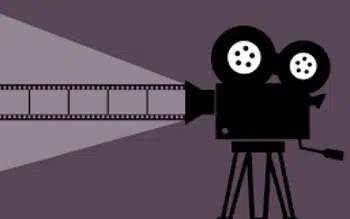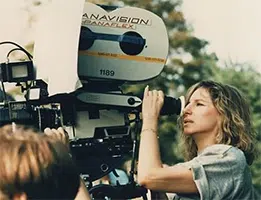 The term cinematography comes from the French cinématographie , itself derived from cinématographe . The concept refers to the recording and display of moving images .
The term cinematography comes from the French cinématographie , itself derived from cinématographe . The concept refers to the recording and display of moving images .
Cinematography is linked to the development of photographic sequences that allow the simulation of movement. Generally this technique is used for the creation of films , giving life to what is understood as cinema .
Considered an art , cinematography has been evolving since its beginnings and its technical advances still do not stop. There are multiple differences between the first black and white films without sound and today's films , which can include countless visual effects thanks to digital technology.
Curiously, technological advances not only impact the technical sphere but also the social sphere, because the new ways of making films also impact their means of viewing. Before going into the details, we must point out that the evolution of this industry has generated an inevitable fragmentation of the market, as well as deep discontent among those who miss traditional cinema.
For example, movies that are projected in three dimensions, which require the use of special glasses for viewing, have left out a large portion of consumers, those who for health reasons cannot enjoy them because they get dizzy or suffer from headaches. head. While it is true that it is not the first product or service that excludes a part of the population, cinema used to be a moment of encounter but increasingly it points in exactly the opposite direction.
The appearance of digital filming, contrary to analogue, is another of the great milestones in the film industry that has changed both the way of making films and the genres and quality. While in the past a considerable budget was needed to embark on a film production, today it is enough to have a fairly recent mobile phone to carry out the recording and even much of the editing of the video, audio and music making use of the appropriate applications.
Needing less money to make a film is excellent news for a team of talented people, but terrible news for the public who fall for the dozens of mediocre productions that fill digital distribution services. This brings us precisely to one of the most worrying phenomena: the rise of televisions larger than 50 inches, added to immersive audio systems and video-on-demand services, have managed in less than two decades to reduce the interest of the people in movie theaters .
 The origins of cinematography date back to the end of 1895 , with the commercial projection of the departure of a group of workers from a factory and other films in France made by the brothers Auguste and Louis Lumière . Little by little, film production grew and became more complex.
The origins of cinematography date back to the end of 1895 , with the commercial projection of the departure of a group of workers from a factory and other films in France made by the brothers Auguste and Louis Lumière . Little by little, film production grew and became more complex.
Thus, cinematography gave rise to a gigantic industry that has Hollywood as an emblematic space and that moves billions of dollars a year. The great figures of cinema , meanwhile, became famous celebrities worldwide.
As a university degree , cinematography allows the training of professionals who are dedicated to film creation and interpretation. Students learn to produce, perform and analyze audiovisual content thanks to the acquisition of knowledge about sound, script , editing, animation and other issues.
A graduate in cinematography can work as a screenwriter, director or film producer, for example. In addition, you can critically evaluate cinematographic discourses .
